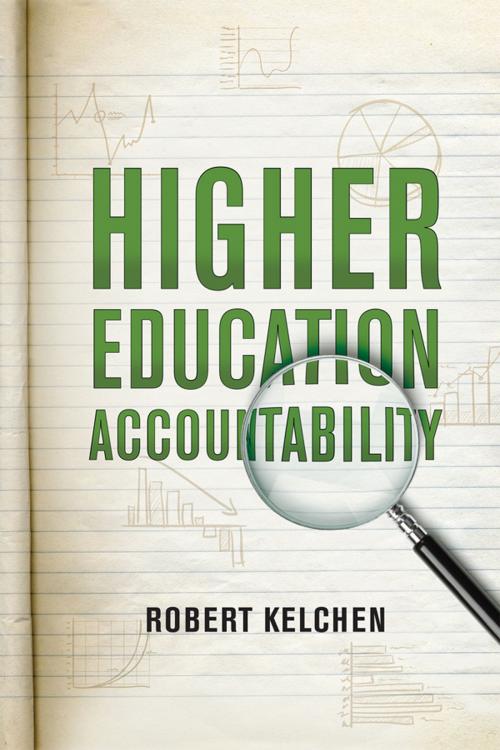Higher Education Accountability
Nonfiction, Reference & Language, Education & Teaching, Higher Education, Administration| Author: | Robert Kelchen | ISBN: | 9781421424743 |
| Publisher: | Johns Hopkins University Press | Publication: | February 27, 2018 |
| Imprint: | Language: | English |
| Author: | Robert Kelchen |
| ISBN: | 9781421424743 |
| Publisher: | Johns Hopkins University Press |
| Publication: | February 27, 2018 |
| Imprint: | |
| Language: | English |
As the price tag of higher education continues to rise, colleges and universities across the country are under increasing pressure to demonstrate their value. Graded on numerous metrics, including cost and ability to prepare students for the job market, colleges must satisfy requirements from multiple stakeholders. State and federal governments demand greater accountability. Foundations and private donors, as well as today's parents and students, approach education with a consumer sensibility. How can colleges navigate these pressures while trying to stay true to their missions and values?
In Higher Education Accountability, Robert Kelchen delivers the first comprehensive overview of how colleges in the United States came to face such overwhelming scrutiny. Beginning with the earliest efforts to regulate schools, Kelchen reveals the rationale behind accountability and outlines the historical development of how federal and state policies, accreditation practices, private-sector interests, and internal requirements have become so important to institutional success and survival.
With so many diverse and conflicting entities holding colleges responsible for their performance, the variety of accountability systems in play can have both intended and unintended consequences. Immersed as they are in current debates about how best to respond to these pressures, faculty and administrators will welcome this up-to-date and timely account, which offers not only a look at current practices but also an examination of the future of accountability in American higher education.
As the price tag of higher education continues to rise, colleges and universities across the country are under increasing pressure to demonstrate their value. Graded on numerous metrics, including cost and ability to prepare students for the job market, colleges must satisfy requirements from multiple stakeholders. State and federal governments demand greater accountability. Foundations and private donors, as well as today's parents and students, approach education with a consumer sensibility. How can colleges navigate these pressures while trying to stay true to their missions and values?
In Higher Education Accountability, Robert Kelchen delivers the first comprehensive overview of how colleges in the United States came to face such overwhelming scrutiny. Beginning with the earliest efforts to regulate schools, Kelchen reveals the rationale behind accountability and outlines the historical development of how federal and state policies, accreditation practices, private-sector interests, and internal requirements have become so important to institutional success and survival.
With so many diverse and conflicting entities holding colleges responsible for their performance, the variety of accountability systems in play can have both intended and unintended consequences. Immersed as they are in current debates about how best to respond to these pressures, faculty and administrators will welcome this up-to-date and timely account, which offers not only a look at current practices but also an examination of the future of accountability in American higher education.















